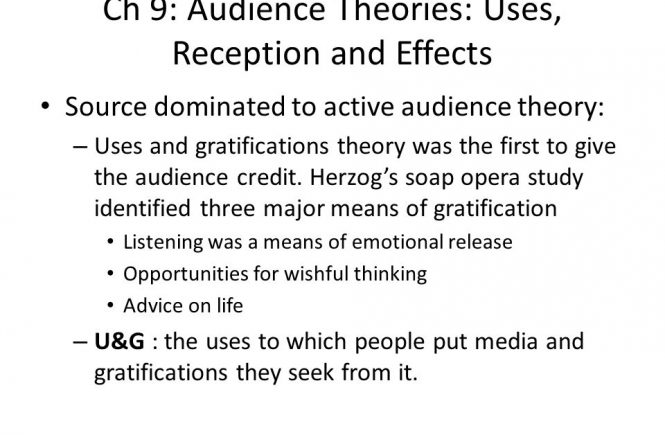Viewer’s Engagement with Mother& Daughter Relationships in Pakistani Cinema: A Case Study of “Dukhtar” Movie Submitted by Amrita Bhowmik MPhil Mass Communication Assam University, Silchar, India Fakhar Naveed MPhil Mass Communication University of Gujrat, Pakistan ABSTRACT This subjective examination analyzes viewer’s engagement with anecdotal depictions of mother-daughter relations in Pakistani Cinema of the 21st century: A Case study of “Dukhtar” Movie. I utilized in depth qualitative research with the dialogues and the content of the movie to investigate how genuine mothers and daughters decipher depictions of mother-daughter relations and how in our society mothers understand their own mother-daughter relationship through their engagement with these depictions. Moreover, these can also that how and to what extent their engagement with these depictions impacts their own lives and mother-daughter relations. The after effects of this investigation revealed a procedure of gathering of people enengagingith mother-daughter relations in “Dukhtar” Movie that included the review […]
AUDIENCE THEORIES: USES, RECEPTION, AND EFFECTS
Chapter#9: AUDIENCE THEORIES: USES, RECEPTION, AND EFFECTS Audience Theories: From Source-Dominated to Active-Audience Propaganda theories are concerned with audiences. The power of propaganda resides in its ability to quickly reach vast audiences and expose them to the same simple but subversive messages. In these theories, the propagandist dominates the audience and controls the messages that reach it. The focus is on how propagandists are able to manipulate audiences using messages that affect them as the propagandist intends. Most are source-dominated theories. They center their attention primarily on message sources and content, not on the audiences the sources want to influence. As media theories have developed, this focus has gradually shifted. As early as the 1940s, the work of people like Herta Herzog, Paul Lazarsfeld, and Frank Stanton reflected at least the implicit concern for studying an active, gratifications-seeking audience. Lazarsfeld and Stanton (1942) produced a series of books and studies […]
FOCUS ON FUNCTIONALISM AND CHILDREN
MOVING BEYOND LIMITED EFFECTS: FOCUS ON FUNCTIONALISM AND CHILDREN Functionalism Theoretical approach that conceives of social systems as living organisms whose various parts work, or function, together to maintain essential processes Communication systems theory Theory that examines the mass communication process as composed of interrelated parts that work together to meet some goal Social cognitive theory Theory of learning through interaction with the environment that involves reciprocal causation of behavior, personal factors, and environmental events THEORIES OF THE MIDDLE RANGE AND THE FUNCTIONAL ANALYSIS APPROACH Merton (1967, p. 68) described middle-range theory as follows: Middle-range theories consist of limited sets of assumptions from which specific hypotheses are logically derived and confirmed by empirical investigation. These theories do not remain separate but are consolidated into wider networks of theory. These theories are sufficiently abstract to deal with differing spheres of social behavior and social structure, so that they transcend sheer description […]
THE RISE OF LIMITED-EFFECTS THEORY
THE RISE OF LIMITED-EFFECTS THEORY Two wars—one imaginary, one real—helped move mass communication theory away from notions of powerful and subversive mass media to a more moderate and benign view. The War of the Worlds researchers, led by Hadley Cantril, were part of a vanguard of social scientists who transformed our view of how media influence society. Within twenty years of Welles’s broadcast, the way many scholars looked at mass media had been radically altered. They no longer feared media as potential instruments of political oppression and manipulation, but instead portrayed mass communication as a relatively benign force with much potential for social good. Researchers gradually came to see media’s power over the public as limited—so limited that no government regulations were deemed necessary to prevent manipulation. limited-effects perspective The guiding idea that media have minimal or limited effects THE DEVELOPMENT OF LIMITED-EFFECTS THEORY The people who developed limited-effects theory […]
Feminist Approach or Feminist Theory
Feminist Approach What Is Feminist Theory? Feminist theory, or feminism, is support of equality for women and men. Although all feminists strive for gender equality, there are various ways to approach this theory, including liberal feminism, socialist feminism and radical feminism. Let’s take a look at the basic feminist ideas and various approaches to achieving gender equality. Basic Feminist Ideas Both females and males who identify themselves as feminists disagree on many things. That being said, most feminists agree on five basic principles: Working to increase equality: Feminist thought links ideas to action, insisting we should push for change toward gender equality and not just talk about it. Expanding human choice: Feminists believe that both men and women should have the freedom to develop their human interests and talents, even if those interests and talents conflict with the status quo. For example, if a woman wants to be a mechanic, she […]
THE RISE OF MEDIA THEORY IN THE AGE OF PROPAGANDA (Review)
MASS COMMUNICATION THEORY Foundations, Ferment, and Future (Book) Chapter#4: THE RISE OF MEDIA THEORY IN THE AGE OF PROPAGANDA (Review) Muckraker Crusading journalist, typically challenging the powerful on behalf of those less so. Propaganda No-holds-barred use of communication to propagate specific beliefs and expectations. White propaganda Intentional suppression of potentially harmful information and ideas, combined with deliberate promotion of positive information or ideas to distract attention from problematic events. Propaganda theorists abandoned idealism in favor of strategies they regarded as realistic and scientific. Propaganda must be resisted by whatever means possible. Even though the threat of propaganda was great, there might be a silver lining to this cloud. If we could find a way to harness the power of propaganda to promote good and just ideals, then we would not only survive its threat but have a tool to help build a better social order. This was the promise of […]
